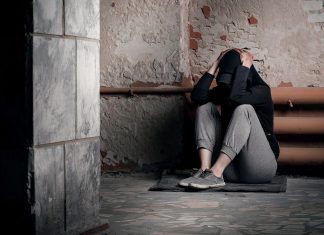
Sometimes we have to do things we don’t want to do. That’s just part of life. And, what those things are may be different for different people. One thing we can probably all agree on though is that no one wants to get a colonoscopy. It could, however, be the very test that saves your life.
According to the Centers for Disease Control and Prevention (CDC), colorectal cancer (cancer of the colon or rectum) is the second leading cause of cancer deaths in the United States. Each year more than 50,000 Americans lose their life to colorectal cancer and an estimated 140,000 additional people are diagnosed with the disease. While colorectal cancer can be deadly, the CDC says it is also highly preventable if you take the proper preventative steps.
The CDC says getting screened is the best way to prevent colorectal cancer and recommends getting your first screening at age 50. Screenings help detect precancerous polyps and early stages of cancer. However, while getting screened is important, it’s only one of many preventative steps you can take when it comes to the health of your colon.
Grays Harbor Community Hospital’s resident expert in colon health, Dr. Justin Marasigan, says one of the best steps you can take to ensure good colon health is eating a diet that is high in fiber. “Compared to other societies, our American diet is lower in dietary fiber. Some argue that this is contributing to our higher rates of colon polyps or cancer and irritable bowel syndrome.” While fiber is found naturally in many foods, Dr. Marasigan says for some, fiber supplements are a great way to ensure you’re getting the right amount that your body needs.
And, it’s not just cancer that a diet high in fiber can help prevent. In addition to colon polyps and cancer, other conditions like irritable bowel syndrome can take a toll on a person’s health. “It’s important to take care of your colon because bowel complaints are one of the most common complaints people have when they see a doctor,” explains Dr. Marasigan. “Whether it’s irritable bowel syndrome, chronic diarrhea, or chronic constipation issues, abdominal issues can be very disruptive to a person’s overall well-being and social activity.”

Dr. Marasigan says this is why fad diets (like gluten-free diets for non-medical reasons) and bowel cleansing have become so popular. “While scientific studies have not supported any medical benefits of gluten-free diets in non-Celiac disease or bowel cleansing, there is increasing evidence that good intestinal bacterial environments may positively influence other aspects of health.” Of course, further research is necessary to understand how to best maintain that environment, but in the meantime, Dr. Marasigan says these findings help support what doctors have been saying for years: eat healthy and exercise.
Preventative care is the cornerstone of a healthy colon, which is why Dr. Marasigan says getting screened is so important. “When found in the early stages, treatment with surgery is often curative,” Dr. Marasigan says. “People who have colon cancer removed in Stage 1 have a 90 percent chance of living five years or more,” he explains. However, that percentage is reduced to 10 in when found in Stage 4. “Studies suggest more than half of colon cancer deaths could have been prevented by adhering to the colon cancer screening recommendations.”
Yes, getting screened for colon cancer is an awkward, inconvenient pain in the you-know-what, but it’s a small price to pay when you look at it in terms of years of (and quality of) life. As we celebrate Colorectal Cancer Awareness Month through the end of March, it’s a great time to start thinking about the health of your colon and whether or not its time to get screened — a message that Grays Harbor Community Hospital and its doctors share not only this month, but year-round. And, Grays Harbor residents can rest assured knowing that their screenings will be performed by doctors (including Dr. Marasigan, Dr. Jonathan Gifford, Dr. Salam Hallak, and Dr. Brent Rowe) backed by years of screening experience.
Grays Harbor Community Hospital and its doctors all advocate the importance of colon health and colon screenings. For more information, or to make an appointment, visit Grays Harbor Community Hospital’s website or give the hospital a call at 360-532-8330, your colon will thank you.













































